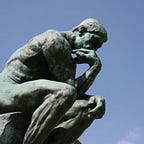My heroes: Vir Savarkar
Savarkar’s revolutionary activities began while studying in India and England, where he was associated with the
India House and founded student societies including Abhinav Bharat Society and the Free India Society, as well as publications espousing the cause of complete Indian independence by revolutionary means. Savarkar published The Indian War of Independence about the Indian rebellion of 1857 that was banned by British authorities.
He was arrested in 1910 for his connections with the revolutionary group India House. Following a failed attempt to escape while being transported from Marseilles, Savarkar was sentenced to two life terms of imprisonment totaling fifty years and was moved to the Cellular Jail in the Andaman and Nicobar Islands, but released in 1921.
While in jail, Savarkar wrote the work describing Hindutva, espousing Hindu nationalism. In 1921, under restrictions after signing a plea for clemency, he was released on the condition that he renounce revolutionary activities. Traveling widely, Savarkar became a forceful orator and writer, advocating Hindu political and social unity.
Serving as the president of the Hindu Mahasabha, Savarkar endorsed the ideal of India as a Hindu Rashtra and opposed the Quit India struggle in 1942, calling it a “Quit India but keep your army” movement. He became a fierce critic of the Indian National Congress and its acceptance of India’s partition. He was accused of the assassination of Indian leader Mohandas Karamchand Gandhi but acquitted by the court.
This hero of India is remembered as a steadfast revolutionary and the airport in Port Blair in Andaman Islands is named in his honor.
